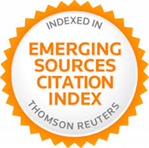Affiliative Acts and Postmemory: Unresolved Questions
DOI:
https://doi.org/10.37536/preh.2014.2.1.663Keywords:
Historical Memory, Postmemory, Affiliation, Spanish Civil War, Andrés Trapiello, Ayer no másAbstract
The rise of memory studies in the social sciences and humanities, as well as the so-called "moda de la memoria" in contemporary Spanish cultural production—with a marked presence of works about the violent episodes of the country's twentieth-century history and their enduring legacies—has given rise to a surge of academic analyses of that cultural production—novels, films, documentaries—by specialists in contemporary Iberian literature and culture. Many of these analyses draw on theoretical bodies from other, or at least neighboring, fields: philosophy and social sciences (from Maurice Halbwachs, Reyes Mate, and Paul Ricoeur to Paloma Aguilar and Elizabeth Jelin) and humanistic approaches to Holocaust Studies (from Cathy Caruth, Shoshana Felman, and Dominick LaCapra to James Young y Marianne Hirsch). In view of this recent production by literary and cultural critics, this essay seeks to accomplish two tasks: to determine to what extent the analysis of individual texts and movies contributes to our understanding of general sociopolitical phenomena such as collective memory and transitional justice; and to clarify some fundamental differences between the historical memory of the victims of the Spanish Civil War and Francoism, on the one hand, and those of the Holocaust, on the other. Given these differences, a notion such as affiliative (post)memory does not mean the same thing in both contexts.
References
Bourdieu, Pierre (1984): Homo academicus. París, Les Éditions de Minuit.
Colmeiro, José F. (2005): Memoria histórica e identidad cultural. De la postguerra a la postmodernidad. Barcelona, Anthropos.
Contratiempo (2010): “¿Qué es Contratiempo?”. En: <http://www.contratiempohistoria.org>. Última visita: 05.09.2013.
Corbalán, Ana (2009): “Reconstrucción del pasado histórico: nostalgia reflexiva en Cuéntame cómo paso”. En: Journal of Spanish Cultural Studies, vol. 10, n.o 3, pp. 341-357.
EFE (2009): “Muñoz Molina pide un gran pacto sobre la Guerra Civil”. En: El País, 23 de noviembre. Disponible en <http://cultura.elpais.com/cultura/2009/11/23/actualidad/1258930811_850215.html>. Última visita: 05.09.2013.
Faber, Sebastiaan (2005): “The Price of Peace: Historical Memory in Post-Franco Spain”. En: Revista Hispánica Moderna, vol. 58, n.º 1-2, pp. 205-219.
Faber, Sebastiaan (2010): “La literatura como acto afiliativo. La nueva novela de la Guerra Civil (2000-2007)”. En: Palmar Álvarez-Blanco y Toni Dorca (coords.): Contornos de la narrativa española actual (2000-2010). Un diálogo entre creadores y críticos. Madrid/Frankfurt, Iberoamericana/Vervuert, pp. 101-110.
Faber, Sebastiaan (2013): “La rebelión de los pesimistas. ¿Cómo defender las humanidades?”. En: FronteraD, 18-24 de octubre. Disponible en <http://fronterad.es/?q=rebelionpesimistas-como-defender-humanidades>. Última visita: 15.12.2013.
Franklin, Ruth (2011): A Thousand Darknesses: Lies and Truth in Holocaust Fiction. Nueva York, Oxford University Press.
Gómez López-Quiñones, Antonio (2006): La Guerra Persistente. Memoria, Violencia y Utopía: Representaciones Contemporáneas de la Guerra Civil Española. Madrid/Frankfurt, Iberoamericana/Vervuert.
Gómez López-Quiñones, Antonio (2012): “A Secret Agreement: The Historical Memory Debate and the Limits of Recognition”. En: Luis Martín-Estudillo y Nicholas Spadaccini (eds.): Memory and Its Discontents: Spanish Culture in the Early Twenty-First Century. Hispanic Issues On Line, n.º 11, pp. 87-116.
Grandes, Almudena (2006): “Razones para un aniversario”. El País, 25 de marzo. Disponible en <http://elpais.com/diario/2006/03/25/opinion/1143241205_850215.html>.
Grandes, Almudena (2007): El corazón helado. Barcelona, Tusquets.
Federación de Gremios de Editores de España (2013): Hábitos de lectura y compra de libros en España 2012. Madrid, Conecta.
Hansen, Hans Lauge (2013): “Auto-Reflection on the Processes of Cultural Re-Memoriation in the Contemporary Spanish Memory Novel”. En: Nathan R. White (ed.): War: Global Assessment, Public Attitudes and Psychosocial Effects. Nueva York, Nova Science, pp. 87-122.
Hirsch, Marianne (2008): “The Generation of Postmemory”. En: Poetics Today, vol. 29, n.o 1, pp. 103-128.
Hirsch, Marianne (2012): The Generation of Postmemory: Writing and Visual Culture after the Holocaust. Nueva York, Columbia University Press.
Juliá, Santos (2006): “Bajo el imperio de la memoria”. En: Revista de Occidente, n.o 302-303, pp. 7-19.
Kansteiner, Wulf (2002): “Testing the Limits of Trauma: The Long-Term Psychological Effects of the Holocaust on Individuals and Collectives”. En: History of the Human Sciences, vol. 17, n.º 2-3, pp. 97-123.
Labanyi, Jo (2007): “Memory and Modernity in Democratic Spain: The Difficulty of Coming to Terms with the Spanish Civil War”. En: Poetics Today, vol. 28, n.º 1, pp. 89-116.
Labrador Méndez, Germán (2011): Reseña de Unearthing Franco’s Legacy: Mass Graves and he Recovery of Historical Memory in Spain. En: Arizona Journal of Hispanic Cultural Studies, vol. 14, n.º 1, pp. 379-383.
Portela, Edurne (2007): “Hijos del silencio: Intertextualidad, paratextualidad y postmemoria en La voz dormida de Dulce Chacón”. En: Revista de Estudios Hispánicos, vol. 41, pp. 51-71.
Radstone, Susannah (2008): “Memory Studies: For and Against”. En: Memory Studies, vol. 1, n.º 1, pp. 31-39.
Ribeiro de Menezes, Alison (2012): “Family Memories, Postmemory, and the Rupture of Tradition in Josefina Aldecoa’s Civil War Trilogy”. En: Hispanic Research Journal, vol. 13, n.º 3, pp. 250–263.
Saeger, J’Leen Manning (2013): “Memory and Postmemory in Lidia Falcón’s Play Las mujeres caminaron con el fuego del siglo”. En: Hispania, vol. 96, n.º 3, pp. 515–524.
Said, Edward W. (1983): The World, the Text and the Critic. Cambridge, Harvard University
Press. Sarlo, Beatriz (2005): Tiempo pasado: cultura de la memoria y primera persona. Buenos Aires, Siglo XXI.
Trapiello, Andrés (2012): Ayer no más. Barcelona, Destino.
Van Alphen, Ernst (2006): “Second-Generation Testimony, Transmission of Trauma, and Postmemory”. En: Poetics Today, vol. 27, n.º 2, pp. 473-488.
Young, James (2000): At Memory's Edge: After-images of the Holocaust in Contemporary Art and Architecture. New Haven, Yale University Press.
Downloads
Published
How to Cite
Issue
Section
License
Copyright (c) 2014 Pasavento. Revista de Estudios Hispánicos

This work is licensed under a Creative Commons Attribution 4.0 International License.








